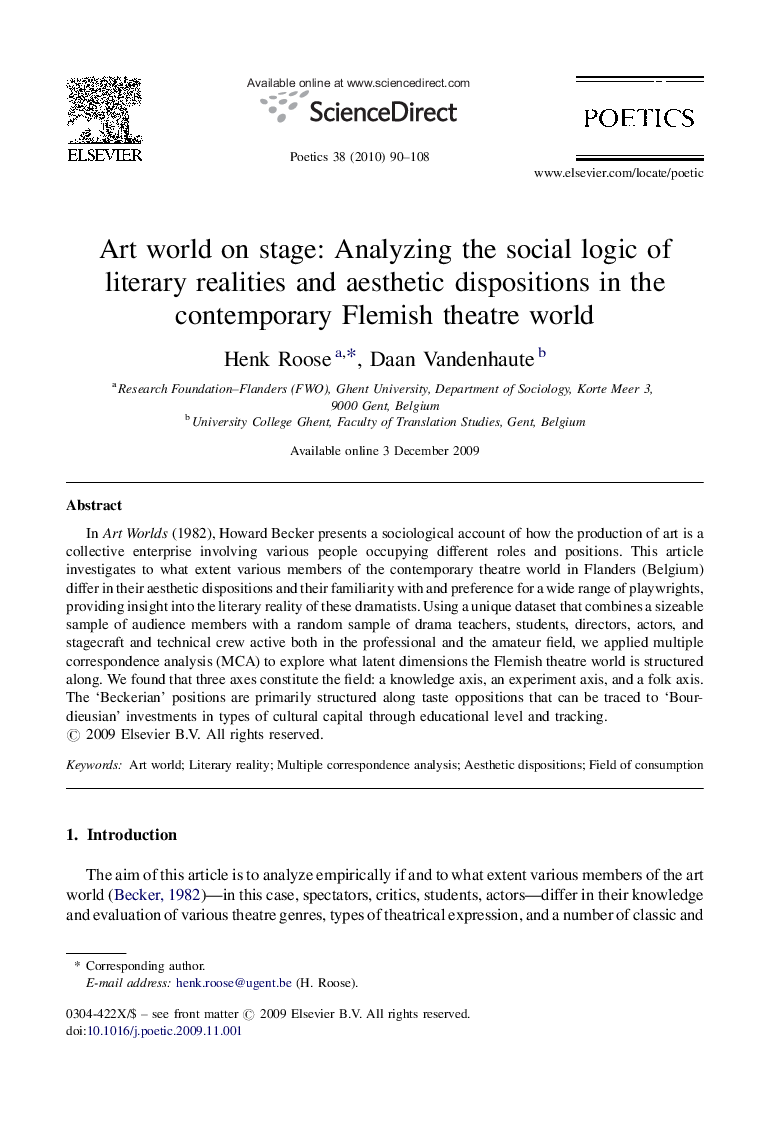| Article ID | Journal | Published Year | Pages | File Type |
|---|---|---|---|---|
| 1128536 | Poetics | 2010 | 19 Pages |
In Art Worlds (1982), Howard Becker presents a sociological account of how the production of art is a collective enterprise involving various people occupying different roles and positions. This article investigates to what extent various members of the contemporary theatre world in Flanders (Belgium) differ in their aesthetic dispositions and their familiarity with and preference for a wide range of playwrights, providing insight into the literary reality of these dramatists. Using a unique dataset that combines a sizeable sample of audience members with a random sample of drama teachers, students, directors, actors, and stagecraft and technical crew active both in the professional and the amateur field, we applied multiple correspondence analysis (MCA) to explore what latent dimensions the Flemish theatre world is structured along. We found that three axes constitute the field: a knowledge axis, an experiment axis, and a folk axis. The ‘Beckerian’ positions are primarily structured along taste oppositions that can be traced to ‘Bourdieusian’ investments in types of cultural capital through educational level and tracking.
